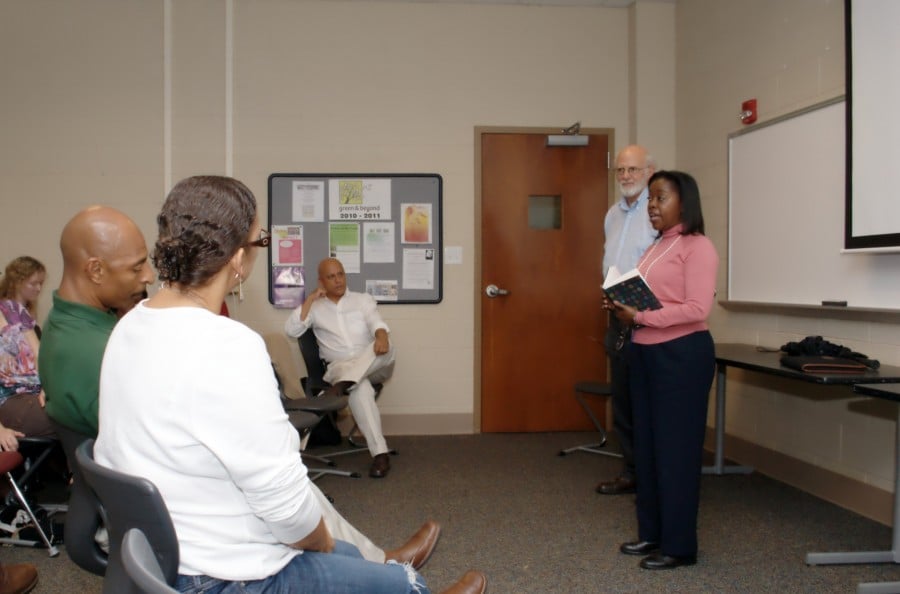Slavery and racism in the United States is a topic most people avoid at all costs. But for some, the reality of what happened and the discrimination that still exists today is harder to ignore.
On Oct. 27, the documentary “Traces of the Trade: A Story from the Deep North” was screened as the second installment of the White Privilege Series sponsored by the Multicultural Education Department and the Center for Principle Problem Solving (CPPS).
The producer and director Katrina Browne began the project upon discovering that her ancestors, the DeWolfs, were the largest slave-trading family in U.S. history.
“It blows away the myth of (slavery) only being in the South, and follows them (the descendants of the DeWolf’s) having conversations around the impact of this information on the family,” said Latino Community Program Coordinator and International Student Advisor Jorge Zeballos.
Dain Perry and his wife Constance R. Perry — family members of Katrina Browne — joined Guilford students and faculty for the screening.
The documentary follows Browne and nine of her relatives as they dig deeper into their family’s history with the slave trade, following the path of the triangle trade. In the film, family members traveled from Bristol, Rhode Island — where their family originated — to the slave castles in Ghana, and finally to the site of the slave plantations in Cuba.
Upon seeing the slave trading post in Cuba, James DeWolf Perry VI said it was difficult “dealing with the living consequences (of the slave trade).”
Despite these high-intensity moments within the film, none of the family members shy away or gloss over their history; Browne designed the documentary as a true life portrayal of the emotions and conflicts that surround race today.
While the family members were in Ghana at a festival called Panafest, one of the relatives approached an African-American woman to talk. The woman responded by refusing to shake his hand and telling him that “she was hoping not to see any white people here.”
This event led to a conversation in the film by the family members where they discuss the feelings of guilt they are carrying and what to do about it.
Browne said that she “decided to make the film not out of personal guilt, but out of grief.”
The discussion after the movie started with Constance telling the audience to think of one word that describes how they felt after the movie. After a moment of silent contemplation, people shouted out their words one by one. Responses ranged from pissed to despair to grateful; many people had tears in their eyes.
The words the audience stated sparked a talk about why one chose the word they did. Constance clarified that the purpose was to share with one another their thoughts, feelings and stories about race and racial discrimination.
“Even though we aren’t in a place of worship we considered the conversations sacred,” said Constance.
“I’ve been to other events like this where I talked about racism and what I realized I do is retreat into this intellectual conversation,” said first-year Emily Morazan. “I realized tonight I don’t think I have ever asked myself how I’ve felt about it, ever, and it scared me.”
Constance and Dain Perry ended the discussion with a question of “what next” to the audience.
“Racism is a cancer that continues to eat away at the U.S.,” said Constance. “(This film) is an exercise at looking at the past, so we can heal going into the future.”

